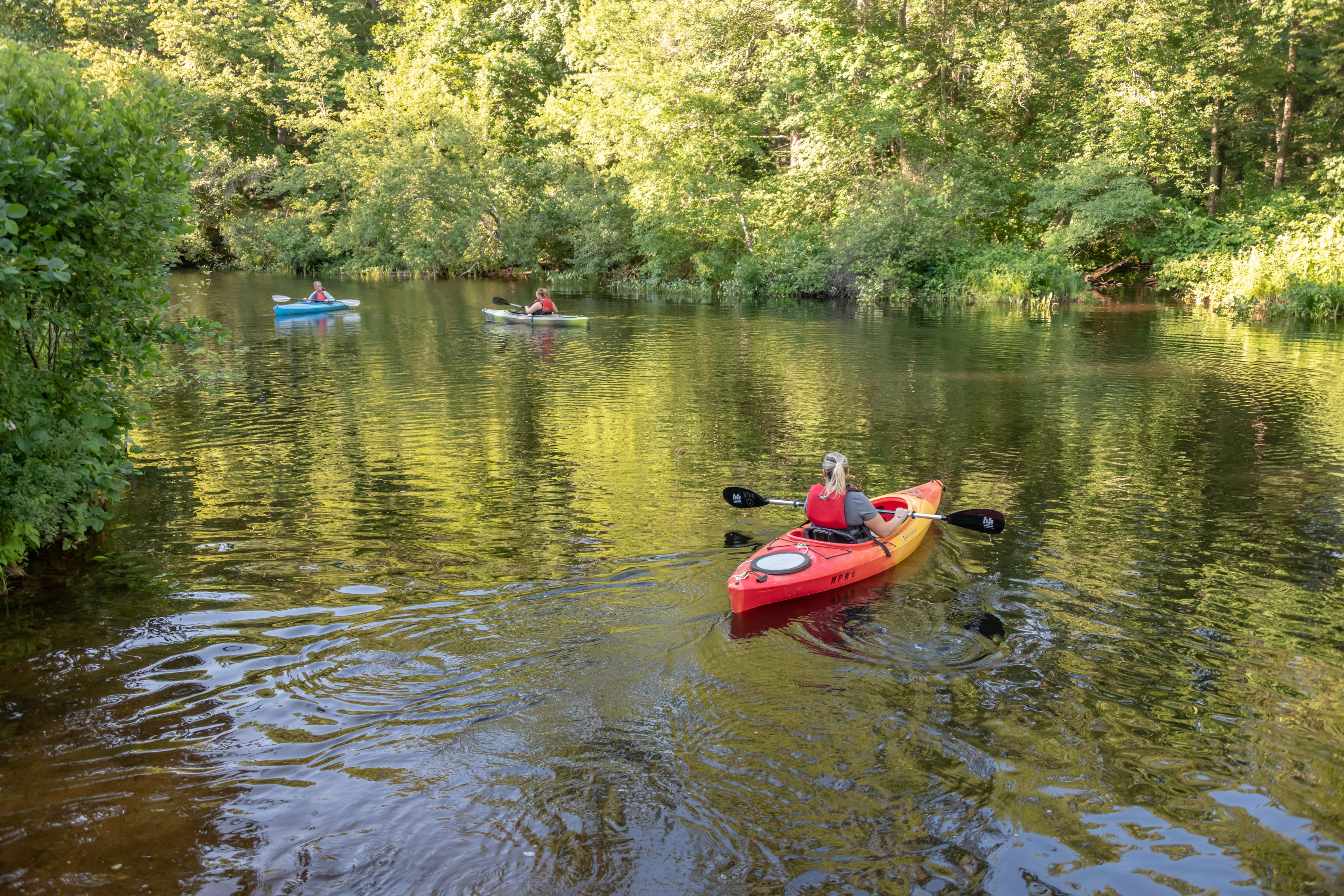Ahoy, matey. Be safe out there
Wearing a life jacket while paddling in Rhode Island will no longer be optional; it will be required, according to new boating safety regulations announced by the Department of Environmental Management (DEM).
There were three fatal kayaking accidents in Rhode Island in 2022: a 56-year-old East Providence man who died in Newport on July 13, a 40-year-old Cranston man who died at Lincoln Woods State Park on July 23, and a 36-year-old Narragansett man who died in Narragansett on Oct. 1.
None of the victims was found wearing a life jacket. Between 2018 and 2021,
four out of the 10 boating-related drowning deaths in the state were paddle
craft users not wearing life jackets, according to National Association of
State Boating Law Administrators data.
"Our regulatory changes are a direct result of the totally preventable paddle craft tragedies that Rhode Island has experienced in the past five years," said Captain Michael Schipritt, Division of Law Enforcement (DLE) Boating Safety Coordinator. "There is no time to put a life jacket on before a paddling accident. It's like trying to buckle your seatbelt before a car crash."
According to a United States Coast Guard (USCG) report, eight out of 10 boaters who drowned were using vessels less than 21 feet in length. Smaller vessels such as canoes and kayaks are less stable than larger vessels and in strong currents paddlers using them can put themselves in danger.
Drowning is the reported cause of death in 75% of all boating
fatalities. Of those who drowned, 86% were not wearing life jackets.
Most boating fatalities are the result of capsizing or falls overboard, not collisions between boats running at high speed. Experts recommend that people who end up in the water stay with the boat, even if they can't get back in. They are more likely to be seen by potential rescuers if they are next to a boat.
A person should only swim for
shore if wearing a life jacket, the likelihood of rescue is low, or they are
close to shore and aren't able to climb back into or on top of the boat.
"The key is the life jacket,"
Schipritt said. "A person who suffers swimming failure or loss of
consciousness will stay afloat wearing a life jacket but will drown without
one."
Another new regulation that could prevent injuries and save lives is a restriction prohibiting anyone from riding on the bow of a powerboat unless it's equipped with bow seats designed to accommodate passengers or from hanging their feet and legs over the top of the gunwale anywhere on the boat while underway.
"Every summer, DLE marine patrols
respond to at least one accident involving too many passengers, often children,
on the bow of a boat upsetting the balance on the boat and the boat taking on
water, or a child dangling their legs over the top of the bow and getting
pulled into the water if the boat goes through a high boat wake," said
Schipritt. "These incidents are preventable."
Another new rule requires boaters to slow down and move over when emergency vessels — such as Coast Guard, firefighting, harbormaster, and DEM boats – are within 300 feet of the boater and have their emergency lights activated.
A fourth regulation requires all fire extinguishers on boats to abide by their age expiration date. Typically, the date of manufacture is printed on the bottom of the fire extinguisher. The last new reg relates to engine cut-off switch compliance.
Specifically, the captain of a
recreational boat that's 26 feet long or less that's equipped with an engine
cut-off switch must use the switch if the boat is "on plane or above
displacement speed." Displacement speed is the speed at which the
wavelength of a vessel's bow wave is equal to the waterline length of a vessel.
As boat speed increases, the wavelength of the bow wave also increases.
For more information on DEM programs and
initiatives, visit www.dem.ri.gov. Follow DEM on Facebook, Twitter
(@RhodeIslandDEM), or Instagram (@rhodeisland.dem) for timely updates. For
information on Rhode Island boating laws, click here.
Related links
